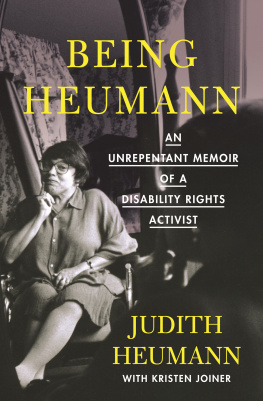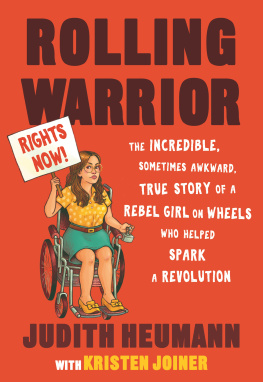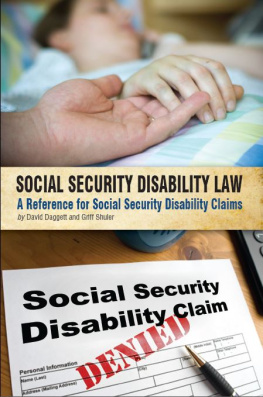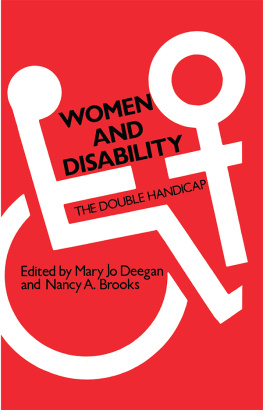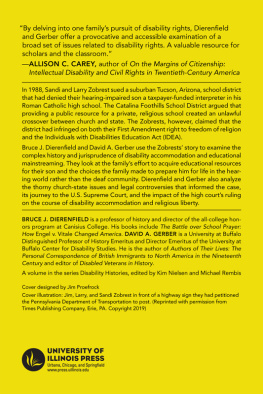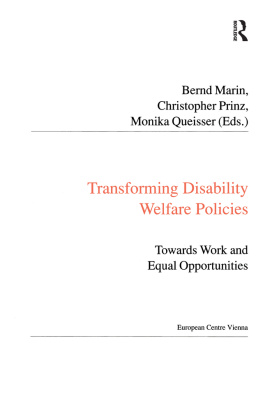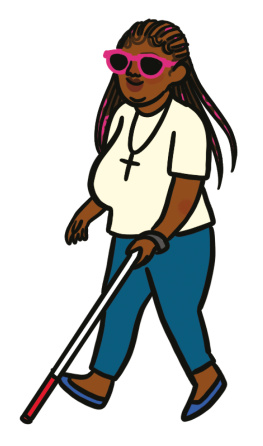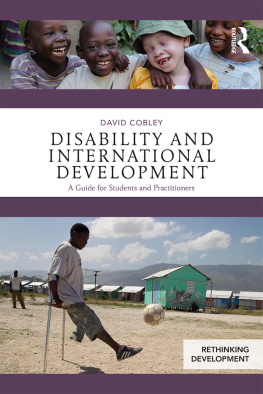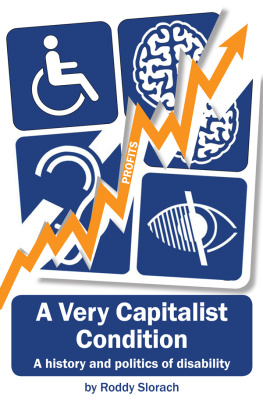Contents
Guide

JUDITH
To my mother and father,
Ilse and Werner Heumann, of blessed memory,
for the belief that I could do anything.
To Marca Bristo, a fellow fighter
who shared a vision of how the world should be.
KRISTEN
To my mother and father,
Laurel Warnick Joiner and Brian Joiner,
who showed me what it means
to truly live by your values.
A NOTE FROM JUDY
FOR A LONG TIME I resisted the idea of writing my story. Not because I was afraid of revisiting these memories, although it has been difficult at times, I admit. But rather because I have never felt like it was my story alone to tell. Everything Ive done in my life, I never would have been able to do alonewhether it was my mother and father or my brothers, my friends from school, or my fellow activists helping, listening, laughing, and leading. I have felt their love and support whispering in my ear throughout this entire process, and I hope my story allows them to shine in the way I remember them. At times I have changed the names of people and certain details for the sake of privacy and recreated some situations based on my memory and the memory of those around me.
And so, with that caveat, I share with you my story.
Thank you for listening.
PROLOGUE
I NEVER WISHED I didnt have a disability.
Im fairly certain my parents didnt either. I never asked them, but if I had, I dont think they would have said that our lives would have been better if I hadnt had a disability. They accepted it and moved forward. That was who they were. That was their way. They deliberately decided not to tell me what the doctor had advised when I recovered from polio and it became clear I was never going to walk again. It wasnt until I was in my thirties that I discovered what hed suggested.
I recommend that you place her in an institution, he said.
It wasnt personal. It didnt have anything to do with our family being German immigrants. Nor was it ill intentioned. I am sure he sincerely believed that the very best thing for these young parents to do would be to have their two-year-old child raised in an institution.
In many ways, institutionalization was the status quo in 1949. Parents werent necessarily even encouraged to visit their institutionalized children. Kids with disabilities were considered a hardship, economically and socially. They brought stigma to the family. People thought that when someone in your family had a disability it was because someone had done something wrong.

I DON T KNOW how my parents responded to the doctor, because my family didnt talk a lot about things like this. But I am sure my parents would have found the idea of putting me in an institution very disturbing. Both my mother and my father had been made orphans by the Holocaust. As teenagers theyd been sent to the United States. It was the time when Hitler was coming into power, when things were getting bad enough that people worried about the safety of their children but didnt think it was going to get as bad as it did. My father came to live with an uncle in Brooklyn at fourteen, and he was lucky that his three brothers followed very soon after. My mother was an only child and was sent alone to live in Chicago with someone she didnt know at all. The story was that a distant relative came from the States to visit my mothers family in Germany and brought news of the worsening situation. The information convinced my grandparents to send my mother, their one child, away to live with this distant relative.
I have often imagined what it must have felt like for my mother. Youre twelve years old and one day someone you dont know, someone youve never met before, comes to visit your family and two weeks later youre suddenly gone from Germany forever, living alone in Chicago with unfamiliar people. My mother always thought that her family would be together again. Even during the war, she was working to save money to bring her parents over. Only later did she learn that theyd been killed.
IF I D BEEN born just ten years earlier and become disabled in Germany, it is almost certain that the German doctor would also have advised that I be institutionalized. The difference is that instead of growing up being fed by nurses in a small room with white walls and a roommate, I would have been taken to a special clinic, and at that special clinic, I would have been killed.
Before Auschwitz and Dachau, there were institutions where disabled children were eliminated. Hitlers pilot project for what would ultimately become mass genocide started with disabled children. Doctors encouraged the parents to hand their young children over to specially designated pediatric clinics, where they were either intentionally starved or given a lethal injection. When the program expanded to include older children, the doctors experimented with gassing.
Five thousand children were murdered in these institutions.
The Nazis considered people with disabilities a genetic and financial burden on society. Life unworthy of life.
So when an authority figure in their new country, a doctor, said to my parents, We will take your daughter out of your home and raise her, they never would have agreed to it. They came from a country where families got separated, some children sent away, others taken from their families by the authorities and never returnedall as part of a campaign of systematic dehumanization and murder.
Their daughter, disabled or not, wasnt going anywhere.
MY PARENTS WEREN T obstinate or antiauthoritarian; they were thinkers. They had learned what happens when hatred and inhumanity are accepted. Both my father and my mother were brave people who lived by their values. They had personally experienced what happens when an entire country chooses not to see something simply because it is not what they wish to see. As a result, they never accepted anything at face value. When something doesnt feel right, they taught us, you must question itwhether it is an instruction from an authority or what a teacher says in class. At the same time, my parents didnt dwell on the past or on things that were done to them.
They didnt forget the past, and they definitely learned from it, but Ilse and Werner Heumann moved forward. Especially Ilse.
She was an optimist. And a fighter.
And so am I.
I cant say I was thinking about all these things when we took over the San Francisco Federal Building, or even when I took on the New York City Board of Education. Only now, looking back, can I see how it all came together to turn me into the person I was to become.
PART ONE
BROOKLYN, NEW YORK
1953
CHAPTER 1
THE BUTTERFLY
SOME PEOPLE SAY that what I did changed the world. But really, I simply refused to accept what I was told about who I could be. And I was willing to make a fuss about it.
I must say right up front, though, that it wasnt actually an I, it was a we. For any story of changing the world is always the story of many. Many ideas, many arguments; many discussions; many late-night, punchy, falling-apart-laughing brainstorms; many believers; many friendships; many failures; many times of almost giving up; and many, many,

